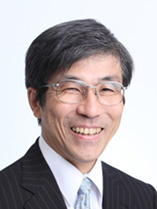お問い合わせ先
Research Cooperation Division I,
International Program Department,
Japan Society for the Promotion of Science (JSPS)
5-3-1 Kojimachi, Chiyoda-ku, Tokyo 102-0083, JAPAN
TEL
+81-3-3263-1944
TEL
fos*jsps.go.jp
Note: Please replace*with @.

 |
Shigeo Koyasu |
|---|
It was around eight years ago when I first learned about the FoS program. The head of JSPS’s Research Cooperation Division asked me to join the FoS Advisory Board. When she described the program to me, it sounded very interesting. At the same time, I had slightly mixed feelings given the fact that I had never been invited to participate in FoS symposia which assemble talented young researchers working on the cutting edge of science, nor would I have even known of their existences.
The first FoS symposium that I joined after being appointed to the Advisory Board in 2006 was the 3rd Japanese-German Frontiers of Science (JGFoS) symposium held in Heidelberg in November of that year. I had a wonderful time there listening to the presentations of researchers from different disciplines and their cross-cutting discussions. Being a naturally curious person I am interested in many things, so the mixing of topics at the symposium lived up to my expectations. Since then, I have participated in the holding of 15 FoS symposia including Japanese-American, Japanese-French, Japanese- German, and UK-Japan symposia. I’d guess that no one else has been involved in this many FoS events. As, however, my involvement in these symposiums is not as a participant but as an organizing official, I have no chance to join in the discussions. Still, I very much enjoy the time I can spend hearing the interesting way in which the presentations and discussions overarch and merge research topics across diverse disciplines. (I must admit, though, that I find myself chaffing at the bit, eager to jump in with a volley of questions.)
I always find it interesting how researchers of unlike disciplines articulate their ideas very differently, and how the thoughts expressed in the questions and answers are couched in different cultures. This gives FoS symposia an enjoyable dimension apart from the science itself. I never hesitate to take part in the free discussions held in the evening, where I can interact directly with the participants and engage them in a spirited exchange of views.
The Planning Group Members (PGMs) play a critical role in determining the success of a FoS symposium. The key to that success lies in the extent to which PGMs communicate with each other and degree to which the Chairs (introductory speakers in JGFoS symposia) communicate with the speakers in preparing the symposium sessions. Well-prepared sessions facilitate and expand cross-disciplinary dialogues. Ill-prepared ones gravitate to a discussion centered among members of the same discipline. From my observations, I would say that the sessions go best when a good working relationship prevails among the PGMs of two countries.
The participants’ own enthusiasm and attitude are also vital to electrifying a FoS symposium. The more they spontaneously join in the discussions, the livelier the atmosphere of the symposium becomes and the more interestingly its dialogue unfolds. Discussion among the participants can get highly charged when someone from a different field provokes a debate by throwing in a counter argument. The members of the Advisory Board who selected the participants for such sessions are very happy to witness this kind of scene. However, when I see a participant that I nominated not actively engaged in a discussion, I feel like I want to pep him up, saying, “You can do it! Chime in!”
A preliminary meeting is held for the Japanese participants prior to each symposium. At it, we tell the newcomers about the format and style of the FoS symposium they will attend, and do a dry run of the discussions in preparation for the real event. Unlike the actual symposium in which English is the working language, in this meeting the speakers present their topics in Japanese. As many of the young Japanese researchers will be participating in a FoS symposium for the first time, this practice gives them a head start in learning how to advance the discussion in their sessions.
It appears, however, that our overseas counterparts do not hold such preparatory meetings; therefore, there have recently been a growing number of cases when Japanese researchers took the lead in advancing the discussion. It makes me very happy to see that what we aim to achieve through this program, such as pioneering new scientific domains and fostering the next generation of leading researchers with wide scientific perspectives, is gradually yielding very tangible results.
I have been pleased to hear about continued exchanges and joint research projects emerging from the relationships and networks formed between researchers of counterpart countries through FoS symposia. There have also been cases of Japanese researchers from different fields who met at a FoS symposium expanding their circle of colleagues and undertaking new initiatives together. Such continuing exchange is also a product of the FoS program.
I look forward to many more young researchers working on the frontlines of science participating in FoS symposia, where they can join in discussions advanced from wide perspectives, expand their circle of friends and colleagues, and go on to shoulder the future of science in Japan and its counterpart countries. I, myself, would like to keep participating in holding of FoS symposia and assisting JSPS in carrying them out successfully.